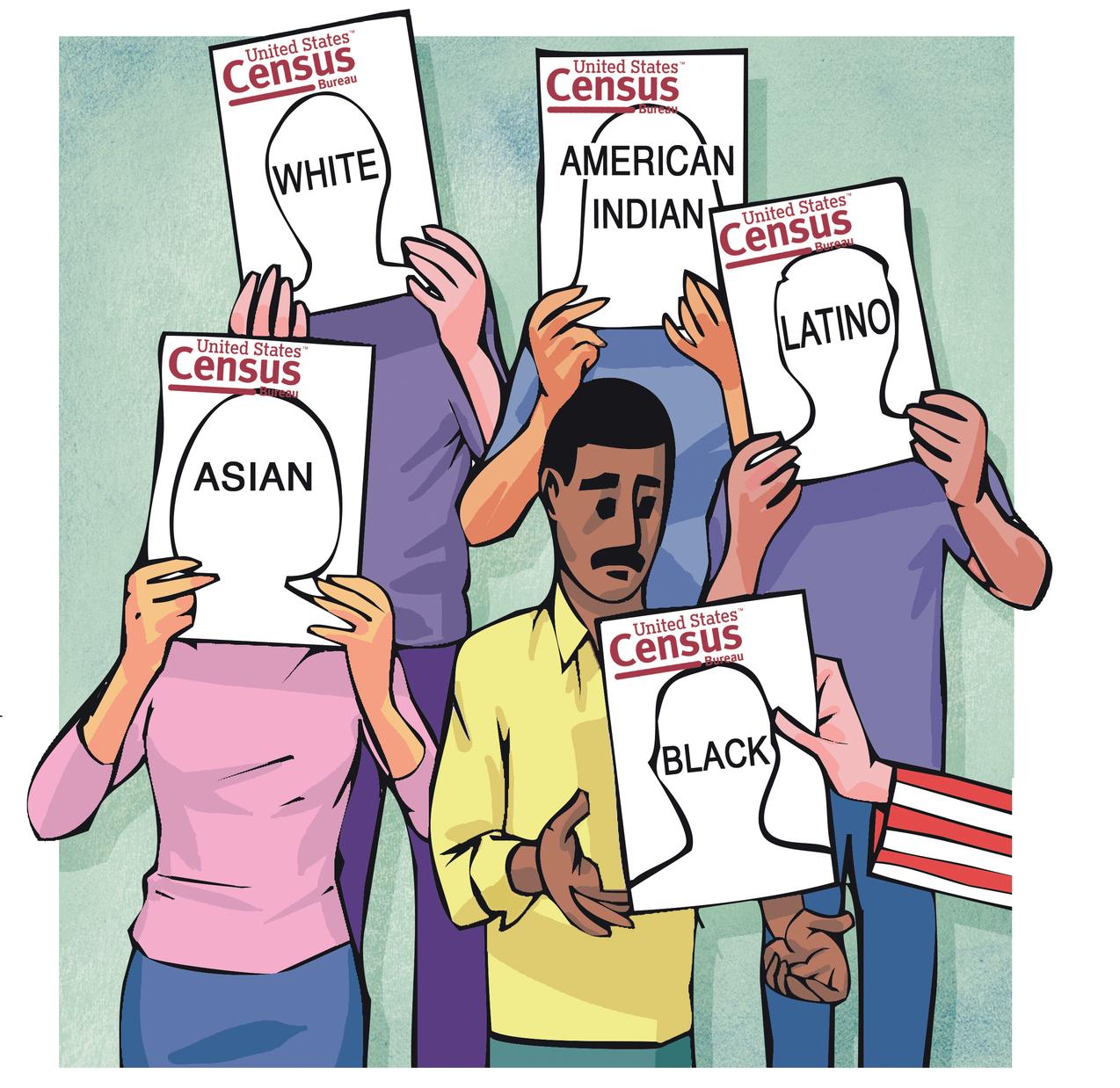Chris Ruffo is a radical right activist. He was probably responsible for the Democrats losing the governorship of Virginia. He did that by pointing out that some public schools in Virginia were involved to some extent in teaching or at least being aware of CRT (critical race theory). At the same time, the Democratic candidate denied this was true. That gigantic blunder, either a lie or a ignorant mistake, was a big part of what sunk the Democrat.
Ruffo now travels the country attacking woke concepts like CRT, BLM, DEI (Diversity, Equity, and Inclusion). I had thought for years that issues the radical right supported or opposed were weaponized by framing them in terms or morality or immorality when possible. Despite my impression that the moral weapon was old and standard radical right practice, Ruffo seems to portray it is a new rhetorical tactic.
He writes:
I recently hosted a summit on anti-woke public policy and, beneath all of the legal and technical details, I realized that there is an opportunity for a significant shift in rhetoric for the political Right.
For decades, conservatives made their arguments primarily through a statistical frame, using the language of finance, economics, and performance metrics. Think “running government like a business.” But in recent years, the rise of left-wing racialist ideology—BLM, CRT, DEI—has created an opportunity, even the necessity, for conservatives to make their arguments through a moral frame, speaking to the conflict of values that underlies the division between Left and Right.
This linguistic shift is already happening—and paying dividends. At the summit, we discussed two specific examples. First, on education, the activist Corey DeAngelis noted that the school choice movement suddenly started winning when it stopped making statistical arguments about performance metrics and started making moral arguments about parental rights and the content of the curriculum. Second, on the federal budget, Wade Miller of the Center for Renewing America has engaged in a similar strategy, moving the debate from the language of large-firm accounting to the language of moral conflict, arguing that Congress should defund the “woke and weaponized bureaucracy.”
Yes, we should improve test scores and balance the budget. But the deeper purpose of government is to secure the rights of the people and to establish a principle of justice. Conservatives must speak to the ends, not simply the means. And, in our advanced managerial society, this will require a new moral language that appeals to the interests and emotions of the common citizen, who wants to be protected from the institutions and ideologies that have arrayed themselves against him.
One of the problems that we’ve had as conservatives is that we’ve ceded the moral language to the Left, to the point that you have even conservative political candidates using identity politics as their framework and as their pitch to voters, because it’s really the most available moral lens. For example, you have someone like Nikki Haley—an ambassador, a governor, a successful administrator—who is pitching her candidacy as: “I am a minority female. Hear me roar.” What she doesn’t seem to understand, however, is that when you operate in your opponent’s frame, you’re guaranteed to lose.
A conservative will never win in a battle of identity politics against the political Left, because they’re setting all of the rules and terms of debate. They’re almost like a bank or a casino and, at the end of the day, the house always wins. But there is also an opportunity and something I learned in the discussions at this summit was that the anti-woke movement has reawakened the possibility for a conservative moral vocabulary.
What continues to be obvious but unseen and/or denied by tens of millions of Americans is the profound hypocrisy and reality disconnect between radical right propaganda and the movement's actual authoritarian, capitalist, theocratic and anti-civil liberties goals. Ruffo criticizes liberal identity politics while the radical right is at least equally immersed in it. The authoritarians warn the public of the danger of a weaponized bureaucracy that oppresses people, but the actual policies are to get rid of laws and bureaucrats that protect average people from abuses of power by the elites.
Believers in radical right propaganda are immersed in this nonsense but firmly and sincerely believe it. Their cannot be changed. If they ever gain enough power, which may already be the case, we will lose our democracy, our inclusive, secular society, the rule law, and many of our civil liberties. Power will flow from us and government to the radical brass knuckles capitalist and Christian nationalist elites who now control the Republican Party, its radical policies and its authoritarian, no-compromise, no-inconvenient truth mendacity and tactics.
But, Ruffo is right about one thing. When you step into your opponent’s frame, you usually lose the debate.
________________________________________________________________________
________________________________________________________________________
Identity politics
What is identity politics? Is it always bad? Like with many or most other issues in politics, people probably will bicker over definitions, descriptions and whether it is good, bad, neutral, mixed or ambiguous. It probably mostly boils down to it’s bad if my political opponents use it, but it’s good if me and my group use it.
Google defines identity politics like this:
a tendency for people of a particular religion, ethnic group, social background, etc., to form exclusive political alliances, moving away from traditional broad-based party politics.
That definition doesn’t necessarily mean it is necessarily good, bad, neutral or anything else. Maybe it suggests unhelpful polarization to some. Broad-based party politics, which has had its problems over the decades, constitutes a broad form of identity politics, at least in my opinion. To some extent in democracies, politics has probably always been at least partly identity-based. That just reflects what humans are.
One problem with the conversation around political polarization is that it can imply that polarization is a static, singular thing. That our divisions are fixed and unchanging. But that’s not how it is at all. The dimensions of conflict change, and they change quickly. In the Obama era, Republicans mobilized against government spending and deficits but didn’t think much about election administration. Now, a trillion-dollar infrastructure package has passed the Senate with bipartisan support, but the divisions over democracy and voting access are deep.
Mason: .... we have this social sorting, right, where effectively the Republican Party has become increasingly white, Christian, rural, male — or at least pro- sort of patriarchy — and the Democratic Party is not as monolithic as that. They’re just sort of the party that’s trying to push for a more egalitarian, multiracial democracy. And so the Republican Party is kind of forced into this — I mean, ironically, right — identity-based politics where they are really trying to make sure that the white Christian male is at the top of the American social hierarchy. That’s what they’re fighting for.
So one of the things that we found, obviously being a Republican, being a conservative, that predicted that they would like Trump in 2018. And it also predicted that they would like Mitch McConnell and Paul Ryan and the Republican Party in general. However, for Trump himself, and Trump alone, the other thing that predicted whether they would like him was that they disliked Muslims, African Americans, Hispanics and L.G.B.T.Q. Americans. Any mix of those, but largely all of them. And that animosity towards those marginalized groups did not predict support for the Republican Party. It did not predict support for Mitch McConnell or for Paul Ryan. It just predicted support for Trump.
And also, these people were coming not just from the Republican Party. Democrats who had these attitudes in 2011 liked Trump in 2018. Independents who had these attitudes in 2011 liked Trump in 2018. So it’s almost like Trump acted as a lightning rod for people who held these attitudes. He was extremely attractive to them, regardless of party, regardless of ideology.
And I think it’s important to say that this is not about the Republican Party, because it’s not true — these attitudes don’t predict support for the Republican Party. Trump was really kind of crystallizing or collecting all of these people into one political movement. And they happened to take over the Republican Party, but it’s not that every Republican holds these attitudes.
And so the racial messages I think became really powerful during Obama’s administration. The Tea Party was very powerfully motivated by racial animosity. And ultimately, this faction of people who love Trump were kind of bubbling up during the Obama administration. And then Trump, of course, really encouraged it. But Trump pulled people from not just the Republican Party.
Now, this is not to say that the Republican Party has not been benefiting from racial rhetoric. And the entire Southern strategy is trying to use implicit racial dog whistles in order to get votes from racially resentful white voters. So it’s not an accident that Trump was popular within the Republican Party, because the Republican Party has been cultivating this group of people. They’ve just been doing it on an implicit level, to a large extent.
Ezra Klein: So imagine we’ve got an electorate of 100 people, and zero opinions have changed between 2000 and 2020, but that the people who have a lot of let’s call it outgroup animosity, right, racial animosity, animosity towards L.G.B.T.Q. people, that they used to be split, let’s call it, 70-30 between the parties. And then now, they’re split 90-10 or 95-5.
Mason: I think that the Democratic Party has been gradually, partly in response to the Republican Party’s attraction [for] people who are high in racial animosity, the Democratic Party has had to react against that.
And unfortunately, that means that we have in the Republican Party — and again, it’s really this MAGA faction, right, these people that really disliked marginalized groups even before Trump came along. They’ve always been in the American electorate. They were Democrats during the Civil War and Jim Crow, et cetera, and now they’ve moved into the Republican Party.
But the problem with that is that we end up with an entire political party that is really trying to speak to these animosities and that sense of hatred of marginalized groups, which means that it has become an anti-democracy party, right? It is not in their interest to fully represent every single American. It’s not in their interest to have a multiracial democracy. In fact, they’re campaigning against that.
This is a country that has been diversifying. It’s going to continue to diversify. White Americans will be not the majority relatively soon. And so ultimately, this movement is for future white ethnic minority rule of the country, which is not compatible with democracy at all. So I think that, in that sense, it’s something to really pay attention to and worry about.
That is how just one expert sees identity politics in the GOP. Obviously, radical right Republican elites, propagandists and the rank and file will vehemently deny that their party is a party with animosity toward any minority. They firmly tell us they are inclusive and tolerant, while the tyrant socialist Democrats and their evil identity politics are the bad actors here. We are identity polarized, to say the least.
Trump Can Help Overcome Identity Politics
Americans are divided in part by decades-old
bureaucratic decisions the president could undo
Identity politics—the artificial segmentation of Americans into antagonistic groups organized along often imagined ethnic, racial and sexual categories—is tearing America apart. President Trump can do something about it.
Does that sound realistic?
Who is the protagonist antagonist group here?












